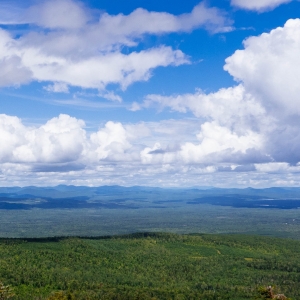The Stream, October 29, 2021: Sudan Coup Leaves Dam Negotiations Uncertain
YOUR GLOBAL RUNDOWN
- In Canada, officials in the city of Iqaluit discover the source of a fuel leak that contaminated the town’s water supply.
- New data from a United Kingdom nonprofit maps out England’s most heavily polluted rivers.
- State government officials in New South Wales announce an increase in the amount of rainwater farmers are allowed to harvest on their property.
- A recent coup in Sudan leaves water diplomacy with Ethiopia even more tenuous.
Recent heavy rainfall in Central and Southern California won’t improve drought conditions, experts say.
“Keep in mind that in order to get out of a drought you need to have multiple storms like this that add up to a wet season. And with a wet season, you can start putting a dent into this drought.” – NWS Meteorologist Mark Jackson. Experts say a recent atmospheric river event in California didn’t improve drought conditions, CBSLA reports. The storm system – which dumped record amounts of rain on parts of Central and Southern California on Sunday – may have helped put out some wildfires across the state. But not for long, Jackson said. As temperatures warm back up again this week, vegetation will again dry out, increasing risks for flames.
IN RECENT WATER NEWS
2021 Election Preview: The Expensive Battle in Maine over Hydropower Imports
The future of electric power in New England, or at least a piece of it, is the subject of a highly contested referendum in Maine.
Central Maine Power, having secured its state and federal permits, already started construction on New England Clean Energy Connect, a 145-mile-long, high-voltage transmission line stretching from the Canadian border to Lewiston. If completed, the line will deliver hydropower generated in Quebec to Massachusetts, in order to fulfill the state’s clean energy goals. A small fraction of the power, about 5 percent, will go to Maine.
What stands in its way? Question 1, appearing on the November 2 ballot thanks to a citizen petition and thousands of signatures, seeks to halt the development. It asks whether Maine voters want “to ban the construction of high-impact electric transmission lines in the Upper Kennebec Region.”
In Case You Missed It:
2021 Election Preview: Two Cities, Facing Floods and Aridity, Eye Big Public Works – Boise and Virginia Beach will ask voters to approve infrastructure plans that exceed a half-billion dollars.
2021 Election Preview: New York Considers Right to Clean Water – Voters will decide on a constitutional amendment for environmental rights.
Canadian Officials Find Fuel Leak Near Water Treatment Plant
Officials in Iqaluit, Canada are blaming contaminated drinking water in the city on an underground fuel spill. CBC reports that the city’s nearly 8,000 residents have been under a state of emergency since October 12, when staff confirmed evidence of a fuel contamination at the local water treatment plant. Since then, residents have been told not to drink the water, even if it’s filtered and boiled.
TODAY’S TOP WATER STORIES, TOLD IN NUMBERS
3 MILLION HOURS
A new map from the U.K. nonprofit The Rivers Trust reveals where river pollution in England is most concentrated. The Independent reports that the map was released amid accusations that Members of Parliament are allowing water companies to dump raw sewage in rivers. Untreated sewage, according to figures from the U.K. Environment Agency, was released into waterways for more than three million hours last year.
30 PERCENT
State government members of the New South Wales Nationals party announced they will raise the amount of rainwater coastal farmers and landowners can store on their property to 30 percent, in hopes to improve water security and reduce the risk of bushfires in coastal communities. The rule will go into effect in early 2022.
ON THE RADAR
After the military took power in Sudan on Monday, water diplomacy between Sudan and Ethiopia will likely become more fragile, according to Reuters. Sudan, Egypt, and Ethiopia have been in tense negotiations over the filling and operating of the Grand Ethiopian Renaissance Dam for years. Ethiopia has repeatedly stated the dam is crucial to keep up with its own energy demands, while Egypt and Sudan have long worried the project could reduce precious water supplies along the Nile River. Sudan’s new leaders are far more likely to take the stance of Egypt’s president, who has previously warned of “inconceivable instability” if the GERD takes away from Egyptian water supplies.
Jane is a Communications Associate for Circle of Blue. She writes The Stream and has covered domestic and international water issues for Circle of Blue. She is a recent graduate of Grand Valley State University, where she studied Multimedia Journalism and Women, Gender and Sexuality Studies. During her time at Grand Valley, she was the host of the Community Service Learning Center podcast Be the Change. Currently based in Grand Rapids, Michigan, Jane enjoys listening to music, reading and spending time outdoors.






Leave a Reply
Want to join the discussion?Feel free to contribute!